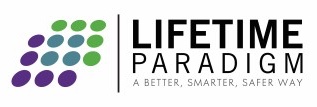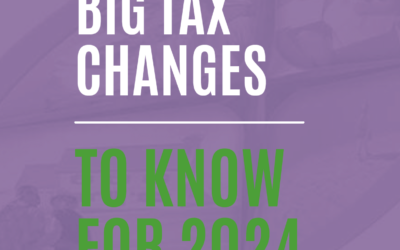Asset Protection
Cybersecurity Monthly Newsletter April 2022
In this issue:
-
Medicare Scams: What You Need to Know
-
Cybersecurity Shorts
-
Software Updates
Welcome to your April Savvy Cybersecurity newsletter. Read on to learn more about:
- The urgent need for cybersecurity whistleblowers
- New Rules on Cybersecurity Disclosures from the sec
- Cybersecurity market expected to be worth billions
- And more
Medicare Scams: What You Need to Know
When you think about planning for retirement, you most likely think about income, healthcare, and your retirement goals. But there is another important area to consider—your cybersecurity and identity. According to the FBI, senior citizens lose more than $3 billion each year to financial scams.
The most common type of identity theft for those ages 60 and over is government document or benefits fraud. In these types of scams, fraudsters trick victims into sharing information about retirement benefits or programs such as Medicare and Social Security. Needless to say, scams like these can be detrimental to your retirement plan. In this month’s newsletter, we are going to discuss Medicare fraud and how you can protect yourself.
What is Medicare fraud?
One of the most common frauds targeted at retirees is Medicare fraud. In the past, Medicare cards showed the beneficiary’s Social Security number on the card itself, leading to high rates of Medicare identity theft. Today Medicare creates a random Medicare Beneficiary Identifier to print on cards but nevertheless, scams have continued.
Most Medicare scams center on scammers obtaining your Medicare Beneficiary Identifier and other personal information. With this information, they can submit fraudulent claims in your name or trick you into paying for services that you do not need.
How do these scams work?
In most cases, scammers will commit Medicare fraud over the phone. In some scams, you will receive a call stating there has been suspicious activity on your Medicare account. The caller may ask you to verify your information by suppling your Medicare number and other personal information.
In other scams, the fraudster may say they need your Medicare number to activate your card—Medicare will never do this. Or, they’ll try to sell you fake supplemental plans. Sometimes they will ask for payment for services that are covered by Medicare. For example, when the Covid-19 vaccine first became available, some scammers targeted Medicare recipients and informed them they could pay to get the vaccine sooner.
How to protect yourself
It is important to know that Medicare will not call you to sell you anything. According to Medicare.gov, there are only two instances that Medicare will call you: (1) A Medicare health plan may call you if you’re already a member of the plan, or (2) You may receive a call if you have called Medicare and are waiting for a callback.
Do not share your Medicare number or Social Security number with anyone except your doctor or a trusted health provider. Avoid giving this information over the phone; wait until you are in the office if possible. Only join a Medicare plan over the phone if you called the insurer directly. If you are unsure, hang up and call the direct number yourself.
Lastly, do not share your Medicare card with anyone other than a trusted health professional. If you receive a new card, destroy the old card and discard it.
Cybersecurity shorts
The need for cybersecurity whistleblowers is more urgent than ever with Russian hackers on the rise
The cyber division of the FBI has alerted lawmakers that Russian hackers are a current threat – with reports of Russian hackers “scanning” critical infrastructure systems. On March 21, 2022, President Biden encouraged companies to harden their cybersecurity defenses because the “Federal Government can’t defend against this threat alone.” If you’re interested you can read more about recent identifications from CISA and President Biden’s address about the rise in attacks.
New Rules on Cybersecurity Disclosures from the SEC
In early March, the SEC announced its proposed amendments to its rules regarding cybersecurity disclosures. The proposed rules enhance and standardized registrants’ cyber security disclosures regarding risk management, strategy, governance, and incident reporting. The proposal would further require annual reporting or certain proxy disclosure about the board of directors’ cybersecurity expertise, if they had any. Here are four things you need to know about this SEC proposal.
The US Navy had cybersecurity wrong – changes to come
For years, the US Navy has framed cybersecurity incorrectly and they have now started to chip away at a new approach that suits their contemporary environment better. Although they have been deeming cybersecurity a compliance problem, they have realized it’s not and should be treated “like the broader concept of military readiness.”
Cybersecurity market expected to be worth billions
According to a new market research report the global cybersecurity market size is estimated to grow from $217.9B in 2021 to $345.4B by 2026. The rising frequency in cybercrimes is one major factor in this growth. You can read more about this, here.
Help protect the children in your household
Children – kids and teens – are often the most unsecured consumers and yet they’re some of the most highly connected and advanced. With the growing use of cryptocurrency and exploration of the metaverse, it is expected that targeting children will become more mainstream as cyber criminals try and exploit of children’s vulnerabilities.
How to get cybersecurity insurance
Recently, President Biden warned all U.S. companies to tighten their defenses following new intelligence about Russian-backed cyber threats. Additionally, cyberattacks are becoming extremely frequent and expensive that many insurance companies are hiking up their premium prices at an alarming rate. This article outlines what you need to do to obtain cybersecurity insurance for your company at a low cost.
Software updates
Adobe: Improved reporting charts and data exports were updated this month. Learn more here.
Firefox: This new release of Firefox 99.0 Stable, Firefox 91.8.0 ESR and Firefoz 99.0 for Android includes security fixes, sandbox strengthening on Linux devices, and support for autofill and capture of credit card data in Germany and France. Read more about the update here.
Microsoft: This update fixes issues in which users cannot save a project to Project Web App when the MPP file has an enterprise resource. Read more about this update here.
SERVICES WE OFFER RELATED TO THIS TOPIC
The information contained in this post is for general use and educational purposes only. However, we do offer specific services to our clients to help them implement the strategies mentioned above. For specific information and to determine if these services may be a good fit for you, please select any of the services listed below.
The 4x4 Financial Independence Plan ˢᵐ
Coaching and Consulting


Big Tax Changes to Know for 2024
Financial Guides2024 has brought some big tax changes with it. It’s essential to stay informed about these...
The Smart Tax Planning Newsletter March 2024
Tax PlanningIn This Issue: IRAs for Young Adults Get Up to $32,220 in Sick and Family Leave Tax Credits New Crypto Tax...
2024 Key Planning & Investment Deadlines for Q2
Financial GuidesSpring is coming and to keep you financially organized for Q2, we are providing you with our Spring...





